Many, many people start consulting the oracle when they have one overwhelming question in their lives – usually a relationship issue. The questions nag at their waking awareness, linger in their dreams, and result in truly obsessive questioning of the oracle.
The same questions are asked again and again in a frantic search for certainty; briefly, after the reading, there’s a sense of knowing a little more; then that small reassurance is washed away on tides of emotion within hours, and they return to the oracle for another reading…
And there are always diminishing returns, with less and less time spent and less and less understood from each successive reading.
An aside – you may be a client of mine, or a member of the I Ching Community here, and think that this is a thinly-veiled description of you in particular. It isn’t. This is just a trap most of us fall into from time to time. Here are some suggestions on how to climb out.

1. Find a different question
The first shift to make is from prediction questions (‘what will happen?’ ‘what is my future?’ etc) to advice questions (‘What can I do now to…?’). For one thing, the oracle cannot tell you for certain what choice another person will make. Also, consulting the I Ching is meant to make a difference to your life; asking for advice in the present moment makes this possible again.
By the way, asking the same question repeatedly isn’t a problem in itself. If a relationship is evolving as you spend time together, for instance, then the best advice on how to be present in it might also evolve. So you would ask, implement the advice, and ask again when you sensed that the situation had changed.
There are other fresh directions you can take in your questioning. Any way of shifting the focus to yourself is empowering; as well as asking about what you can do, you can also use the I Ching in support of some self-examination. (‘What am I looking for from this?’ ‘Why am I attracted to him/her?’)
2. Slow down
One of the characteristics of the obsessive style of consultation is that each reading gets categorised as ‘good’ or ‘bad’ within moments of receiving it. This is a sign that you’re consulting in hopes of feeling different. If you approach the readings slowly enough actually to understand what they’re telling you, you have a much better chance of being different. (Often, though not always, that means going through an intermediate stage of doing something differently.)
However, the advice to ‘slow down’ (or even ‘stop doing readings’) by itself is about as useful as a chocolate teapot. You could ‘ration yourself’ to a limited number of readings per week – but that’s an artificial measure that might still leaving you asking more, or less, than you really need. An alternative approach is to slow down over each individual reading, and concentrate on making the most of it you possibly can.
Lead into every reading with a strong, specific intention. Write down what your current situation is, and what you intend to be different after the reading. For example, ‘I want to know how to act round him,’ or ‘I want to decide once for all whether to send this message.’
When you’ve prepared your intention, prepare for the reading. This is not a good time for computerised readings. Take out your yarrow stalks; light a candle or incense. If you know you’ll be spending the next fifteen minutes sorting stalks, you’re likely to pay a lot more attention to both question and answer.
Journal your reading scrupulously. (Here is specialist software for that.) Write down your question; write down all the texts of your answer. Read through both, to get a sense of the conversation you’ve begun. Think about the questions the reading is asking you.
And then go back to that original intent and decide how you’ll be different as a result of the reading.
Finally, develop a review habit. Go back to the reading a week or so later and contemplate what difference it’s actually made.
If you’re like me, you will spend a lot of time thinking about what a difference it would have made if you’d only had it in mind at the critical moment – but that’s also a form of learning (ouch). This is also an opportunity to pick up on patterns in your readings: repeated hexagrams, repeated nuclear hexagrams, if you get some line positions changing more than others, what kinds of questions give rise to unchanging hexagrams…
(The Resonance Journal‘s ‘Cast History’ and ‘Advanced Search’ features make it surprisingly easy to find the patterns.)
This is really about returning to the fundamentals of consulting: things we already know, but tend to lose sight of in the emotional heat of the moment. Some questions the oracle can answer; some – like ‘What will she decide?’ – it can’t. Conversation with an oracle calls for a clear intent, genuine attention, and a willingness to allow change.
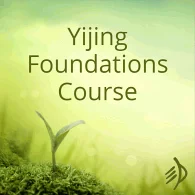
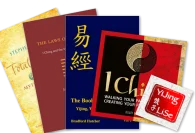
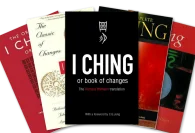
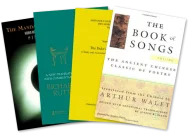
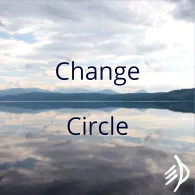

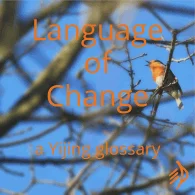
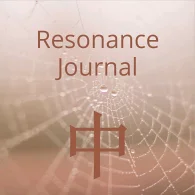

The worst I ever saw was in the seventies in a ‘share’ house, with myself, a realy nice lady in the other room and a not so with it young guy who was into heavily experimenting with drugs which then were mostly marijuana and LSD. Much to his detriment. Anyway, as the others in the ‘share’ house were working, we used to try and motivate this young bloke to do at least one or two little things during the day for the others’ in the house who would arrive home from a hard days yakka, exhausted. Then one day the lady asked him, “I’ve arrived home having left milk in the fridge for cups of tea and the odd bowl of cereal or whatever else and its all gone”. Then she asked why he hadn’t gone to the shops to get another pint of milk to refurbish the one he had scoffed down at five in the morning. Not suggesting he was compulsive / obsessive with his I Ching use, but the worst excuse came out. He had asked the I Ching, “What would it be like if I went down the street to buy some milk”. With 4 Meng Youthful Folly, he had given up and gone back to bed for the day.
…while the oracle packed up and went out for a walk!
Thanks for the story, Nick. I hope things are going better for you.